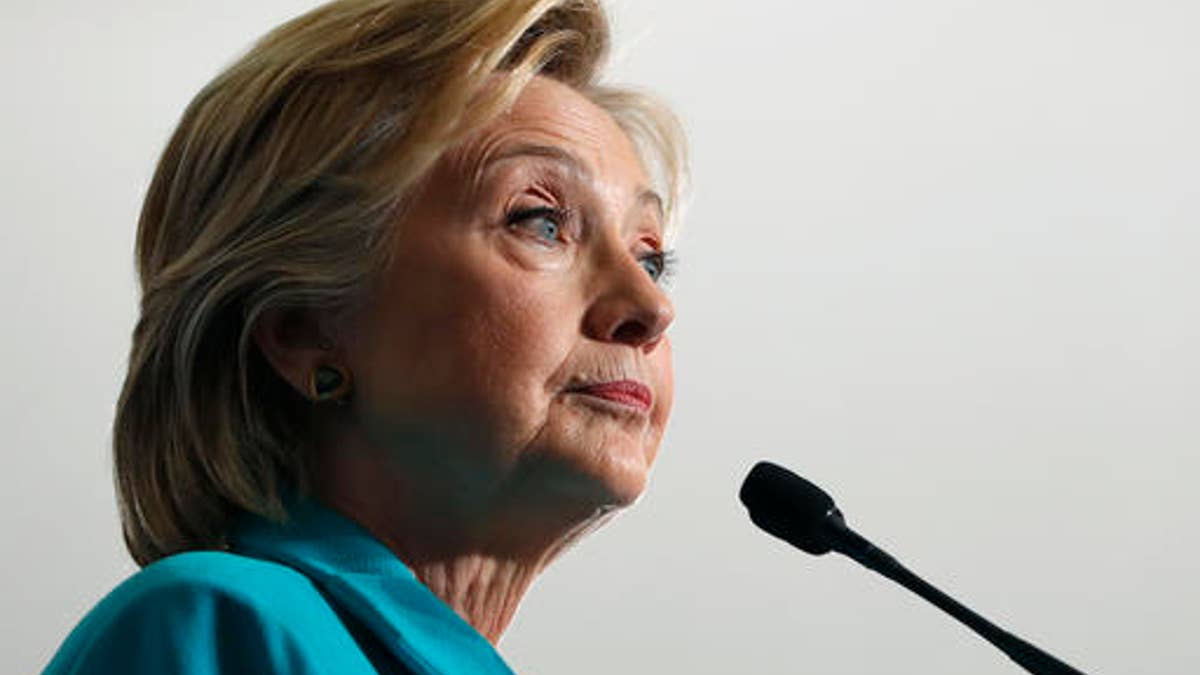
Aug. 25, 2016: Hillary Clinton speaks at Truckee Meadows Community College in Nevada. (Copyright 2016 The Associated Press. All rights reserved. This material may not be published, broadcast, rewritten or redistribu)
Wednesday, Hillary Clinton offered a forcefully stated case for American exceptionalism in her address to the American Legion’s national convention. In the speech she championed America as having a unique and significant role in the world and in her own political aspirations. “If there’s one core belief that has guided and inspired me every step of the way, it is this: the United States is an exceptional nation.”
She also noted that America’s unique and significant role comes with serious responsibilities. “When we say America is exceptional,” she said, “it means that we recognize America’s unique and unparalleled ability to be a force for peace and progress, a champion for freedom and opportunity.”
How should Evangelicals respond to these words? Christian citizens should respond to Clinton’s case with a qualified “yes” and a firm “no.”
First, we should respond with a qualified “yes.” Let me start with a theological and moral qualification based around our pledge of allegiance to the United States as “one nation under God.” The United States, like all other nations, exists under God’s reign. It—like China, Russia, and Saudi Arabia—is a nation under God. That is a theological fact.
For Christians, “one nation under God” is also a moral aspiration. We want our country to align its vision for the good life with God’s design for human flourishing. We don’t want to institute a theocracy where non-Christians are forced to live like Christians. Far from it.
But for Christians, “one nation under God” is also a moral aspiration. We want our country to align its vision for the good life with God’s design for human flourishing. We don’t want to institute a theocracy where non-Christians are forced to live like Christians. Far from it. The gospel is freely given and freely received. However, we do want basic Judeo-Christian morality to be the guiding framework that American citizens adopt. And the extent to which we adopt that framework, with its attendant vision for human flourishing, the United States will be an exceptional nation.
Let me continue with a further qualification. Clinton mentioned the United States’ unparalleled ability to be a force for peace. She is right that we are the most powerful nation in the world and, as such, we should wield our power in the service of peace. However, in our desire to foster peace, we should refuse the interventionist tendency that has sometimes characterized the foreign policy of both major political parties.
Interventionism seeks peace through proactive war-waging. But once we become proactive interventionists, expanding the notion of just war to include interventions such as “preventive strikes,” we have lapsed into a crusader ethic that seeks a final peace through the sword. As Christians we reject the crusader ethic because it oversteps God’s design for government to wield the sword defensively by wielding it offensively to try to achieve the type of comprehensive world peace that only God will achieve. To the extent that Americans wield our power wisely without lapsing into a crusader mentality, therefore, we will in fact be an exceptional nation.
Second, we should respond with a firm “no.” In Hillary’s speech, she made clear her view that America is unique in its ability to be an unparalleled force for progress in the world. The United States has always viewed itself as being in the vanguard of progress.
But much of what Hillary Clinton and the left view as progress is actually regress. Take human rights, for example. As the left-leaning faction of the Supreme Court continues to legislate from the bench, creating “rights” out of thin air, the United States veers farther and farther away from the Judeo-Christian vision for the common good. Our vision for human flourishing does not include a right to take innocent life in the womb, to make gender malleable, or to redefine the institution of marriage.
To make matters worse, a number of persons on the left are not satisfied with their legal victories, but are now trying to stigmatize those of us who are conscientious objectors. They make an analogy with the Civil Rights Movement. Like slaveholders of the past, they argue, we are on the “wrong side of history” and should be stigmatized as such. To the extent, therefore, that Clinton and the left tie their international policies to these freshly fabricated human rights, the United States is a decidedly unexceptional nation.
Are Evangelicals on the wrong side of history? If by “history” you mean current trends and by “wrong side” you mean being on the receiving end of moral condescension, the answer is yes. But if we define history by the Bible’s narrative and being on the right side by aligning ourselves with God’s vision for human flourishing, the answer is no. To the extent that our answer is no, the United States will be a truly exceptional nation.








































